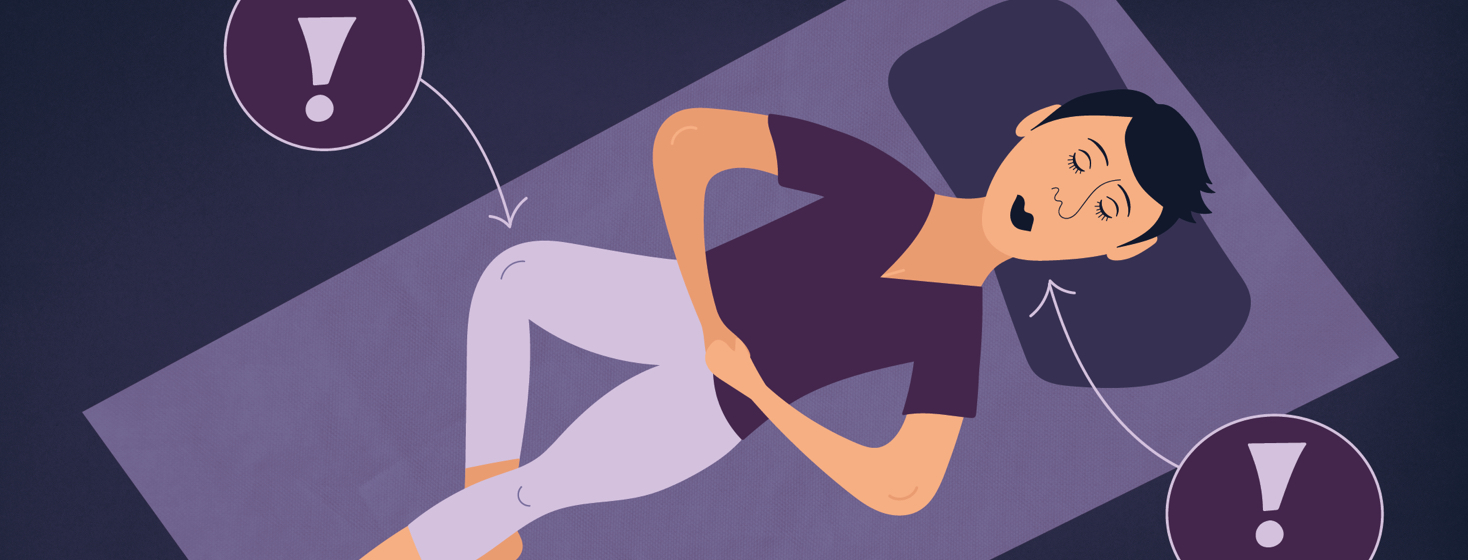'What You Talking About, Willis?'
"You have Willis-Ekbom disease." Willis what? Restless legs syndrome, ah now I get it...or got it. (Little spoonie humor)
As I wrote in my introduction, I have had restless legs syndrome (RLS or WED) since I was a little kid. It wasn't until last year that I actually got an official diagnosis and not just told, "Yeah, you probably have RLS." The reason I finally got the diagnosis was by trying to figure out why my breathing wasn't always autonomic.
I was nervous about my sleep study
My former doctor ordered a sleep study because he thought that was the cause of my breathing not always being autonomic. This had me very nervous because I have always had a very rough time sleeping in a new environment.
I worried if they would actually be able to get an accurate reading. I wished we had the technology that the Netherlands does so that you are hooked up to a portable device, and it does its thing while you are in the comfort of your own home. I was also nervous because, at this point, I was waking up every 2 to 3 hours to go the bathroom.
Trying to relax and make myself comfortable
The evening of the test arrived during the beginning of the COVID-19 pandemic. I tried to relax as best as I could. I even brought an old cell phone that has a rain track on it.
I eventually got all hooked up, and I have to say, I am ever so grateful I sleep on my back. I got the room set up the best as I could, fan going for white noise and to help keep me a comfortable temperature. I wish I could have brought my own pillow, but due to COVID-19, I had to use one of theirs.
How the sleep study turned out
I was happy that I only ended up waking up twice in the middle of the night to go to the bathroom. It took time to get disconnected and was awkward with all those cords everywhere. I was surprised that I slept pretty decent for it being a new environment.
It really did help that it's a soundproof room, so there were no weird sounds to disturb my very light slumber. Although I felt like I slept pretty decent, 7 hours worth, I actually slept around 5 hours in reality. It turns out I have central sleep apnea on top of the RLS. (Cue sad horn sound: Womp, womp.)
The best part about my experience
The best part was discussing the fact I got an RLS diagnosis with the sleep expert. He asked how old I was when I first started having RLS symptoms and then started to talk about what I can do to help the RLS.
He started going on and on about how important exercise was and then stopped mid-sentence to ask again what age I was when symptoms started. When he heard how young I was, he told me that he was wrong; no amount of exercise would change anything for me. It's basically ingrained in me.
It then became about figuring out how to live with RLS, which is the sleep routine the sleep clinic recommended – magnesium and Pramipexole. I still experience lots of discomfort, pain, and general RLS(-nesses), but the pain has lessened slightly, it's less disruptive to my sleep, and I can fall asleep faster.

Join the conversation